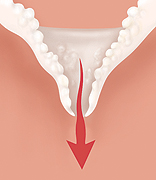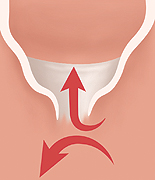Welcome to the medical library of Hartford Cardiology Group. The information shared below is provided to you as an educational and informational source only and is not intended to replace a medical examination or consultation, or medical advice given to you by a physician or medical professional.
If you have any questions or concerns regarding any condition or treatment, please contact Hartford Cardiology Group. To schedule an appointment please call (860-547-1489) or [email protected].
Heart Valve Problems
Your heart’s job is to pump blood through your body. That job starts with pumping blood through the heart itself. Inside your heart, blood passes through a series of one-way gates called valves. If a valve works poorly, not enough blood moves forward. A problem heart valve may not open wide enough, not close tightly enough, or both. In any case, not enough blood gets sent out to the body. This causes the symptoms you feel.
Symptoms of Heart Valve Problems
You can have a problem valve for decades yet have no symptoms. If you do have symptoms, they may come on so slowly that you barely notice them. In other cases, though, symptoms appear suddenly. You might have one or more of these symptoms:
- Problems breathing when you lie down, exert yourself, or get stressed emotionally
- Pain, pressure, tightness, or numbness in your chest, neck, back, or arms (angina)
- Feeling dizzy, faint, or lightheaded
- Tiredness, especially with activity or as the day goes on
- Waking up at night coughing or short of breath
- A fast, pounding, or irregular heartbeat
- A fluttering feeling in your chest
- Swollen ankles or feet
Problems Opening (Stenosis)
When a valve doesn’t open all the way, the problem is called stenosis. The leaflets may be stuck together or too stiff to open fully. When the valve doesn’t open fully, blood has to flow through a smaller opening. So the heart muscle has to work harder to push the blood through the valve.
Problems Closing (Regurgitation)
When a valve doesn’t close tightly enough, the problem is called regurgitation or insufficiency. The valve itself may be described as leaky. Leaflets may fit together poorly. Or the structures that support them may be torn. Some blood leaks through the valve back into the chamber it just left. So the heart has to move that blood twice.
Common Causes of Valve Problems
Men and women of any age can have heart valve trouble. You may have been born with a problem valve. Or a valve may have worn out as you’ve aged. It may not be possible to pinpoint what caused your valve problem. But common causes include:
- Buildup of calcium or scar tissue on a valve
- Rheumatic fever and certain other infections and diseases
- High blood pressure
- Other heart problems, such as coronary artery disease


